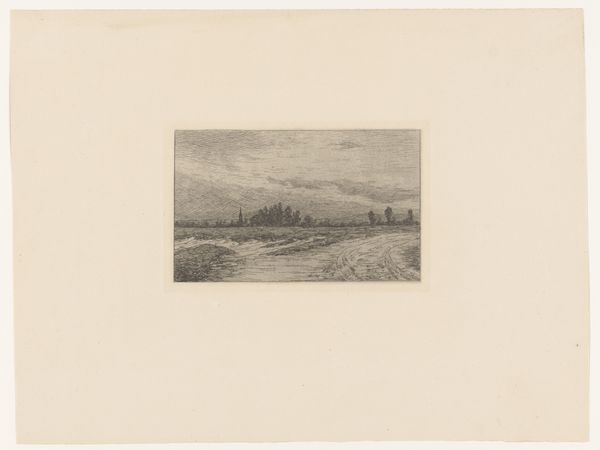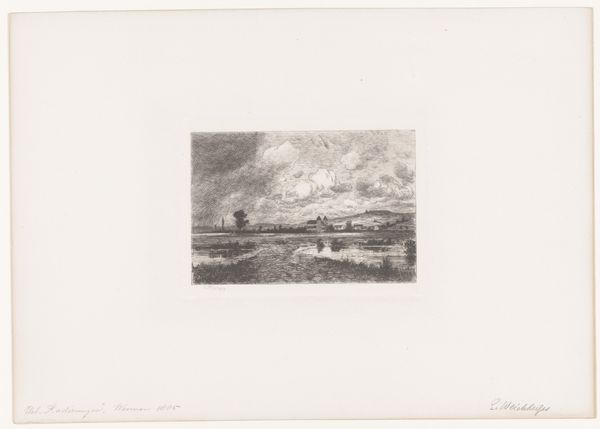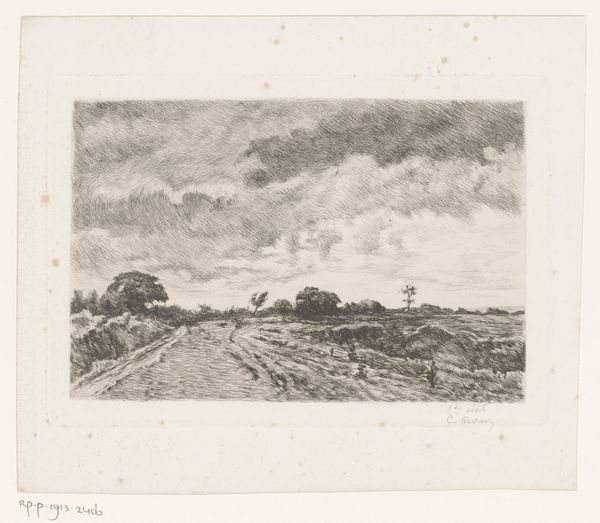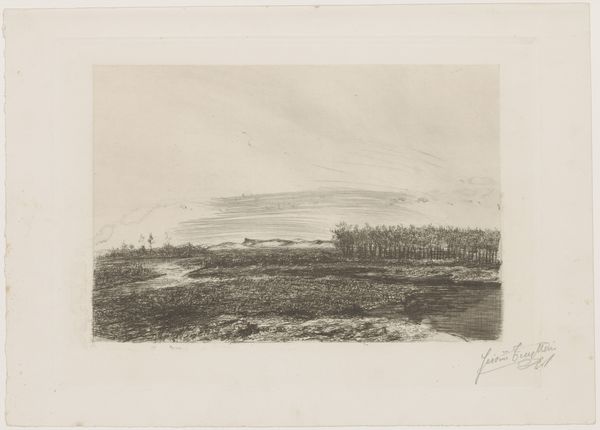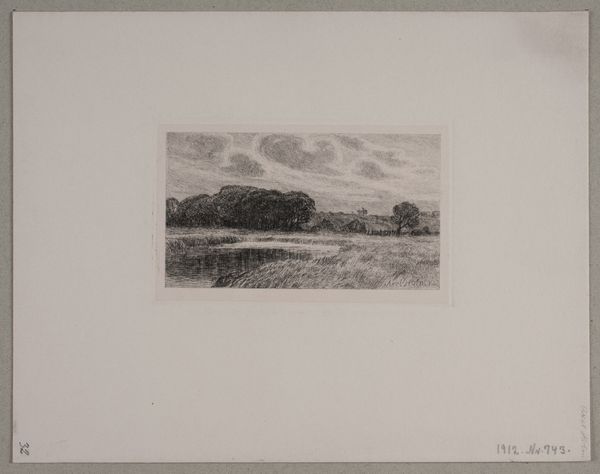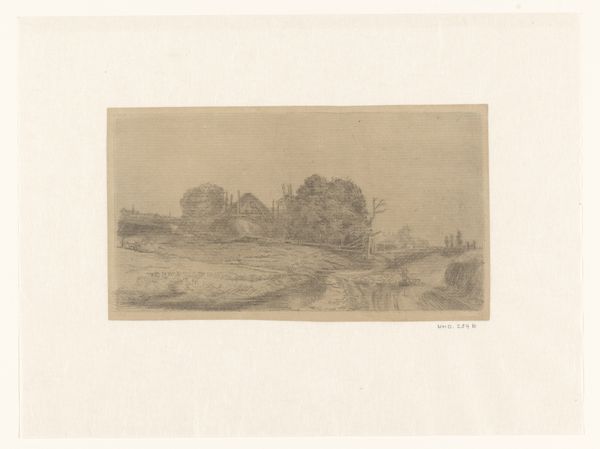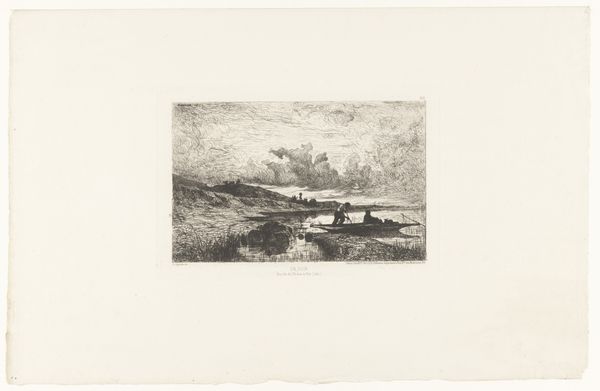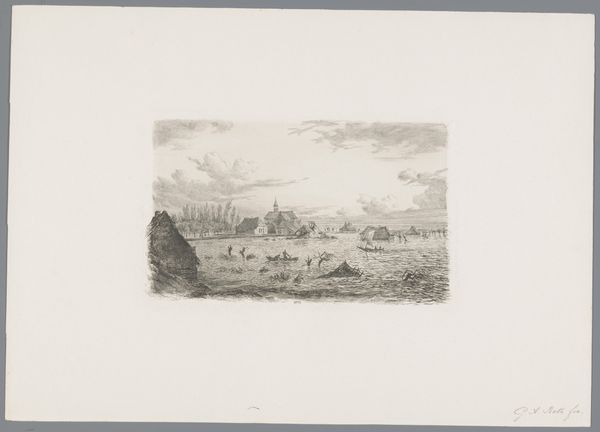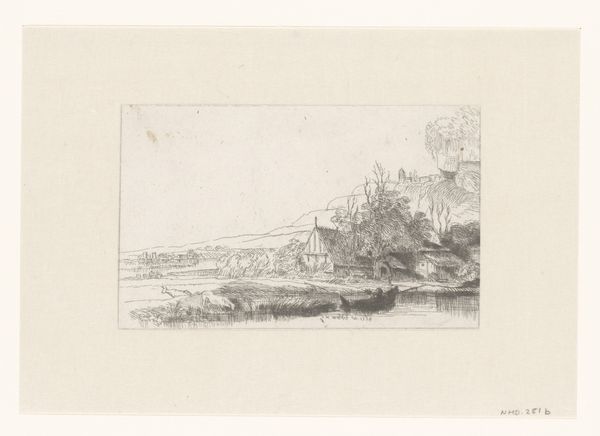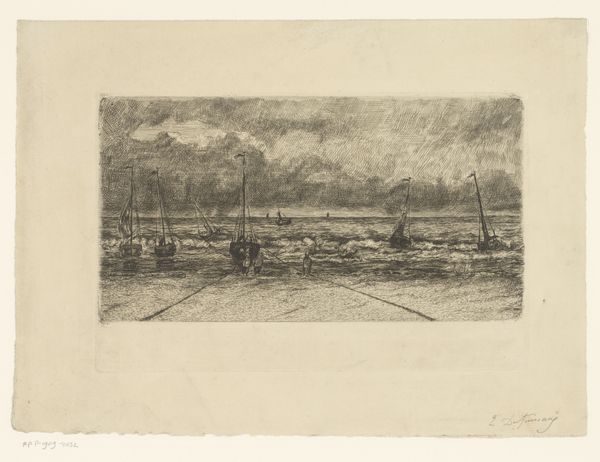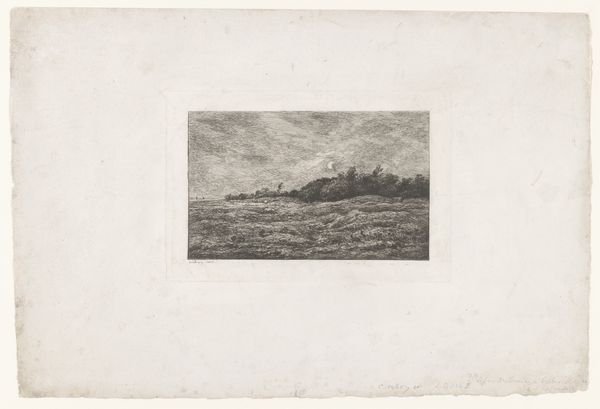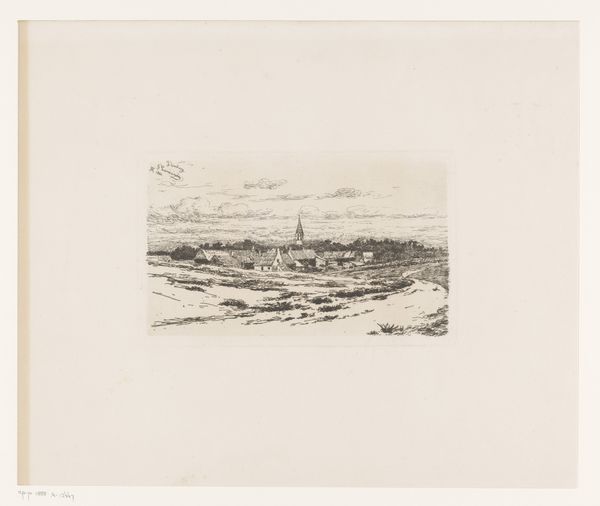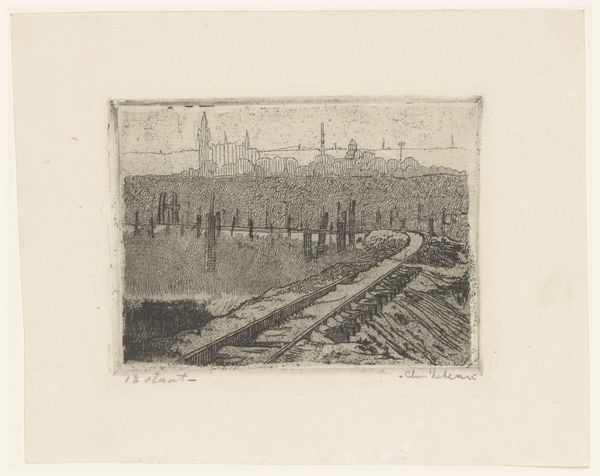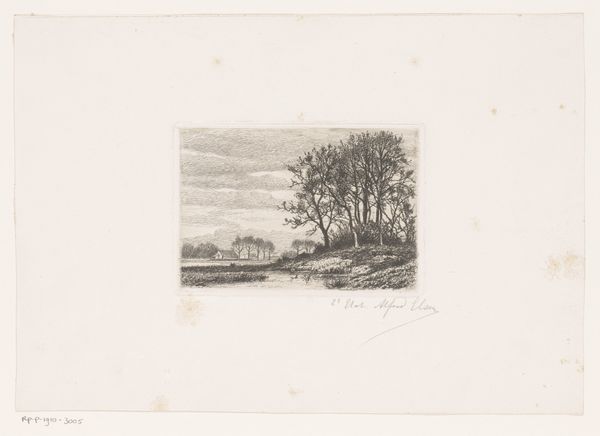
drawing, print
#
drawing
# print
#
landscape
#
realism
Dimensions: height 300 mm, width 422 mm
Copyright: Rijks Museum: Open Domain
Editor: This is Jacobus Sörensen's "Dijkdoorbraak bij Ingen, 1855," a drawing and print of a flooded landscape. The scene is unsettling. The composition and muted tones evoke a feeling of loss and nature's power. What can you tell me about this work? Curator: The cultural context is key here. The print depicts the aftermath of a devastating dike breach. What message was Sörensen trying to convey about Dutch society at this time? Editor: Perhaps a reflection on our relationship with nature? There's such vulnerability depicted here. Were there societal anxieties surrounding these natural disasters? Curator: Absolutely. The 19th century in the Netherlands was marked by constant battles against water. Artists frequently used landscapes to explore the tensions between nature, progress, and human vulnerability. Consider the political implications of such a piece. Who is empowered, and who is victimized by the breach? Editor: That's a perspective I hadn't fully considered. The distribution of power and responsibility in such a catastrophe. It's not just about a flooded landscape; it's a commentary on societal structures. Curator: Precisely. The image, accessible through prints, also raises questions about whose stories get told and how disaster is represented in the public sphere. It encouraged conversations around disaster relief and infrastructure. This work provides not only an accurate observation but prompts discourse. What have you gathered? Editor: That the work moved beyond a representation of the disaster to actively ask difficult questions about our relationship with nature, but more crucially with each other. Curator: It's a powerful reminder of art's ability to provoke thought, and document history and act as a socio-political instrument.
Comments
No comments
Be the first to comment and join the conversation on the ultimate creative platform.
